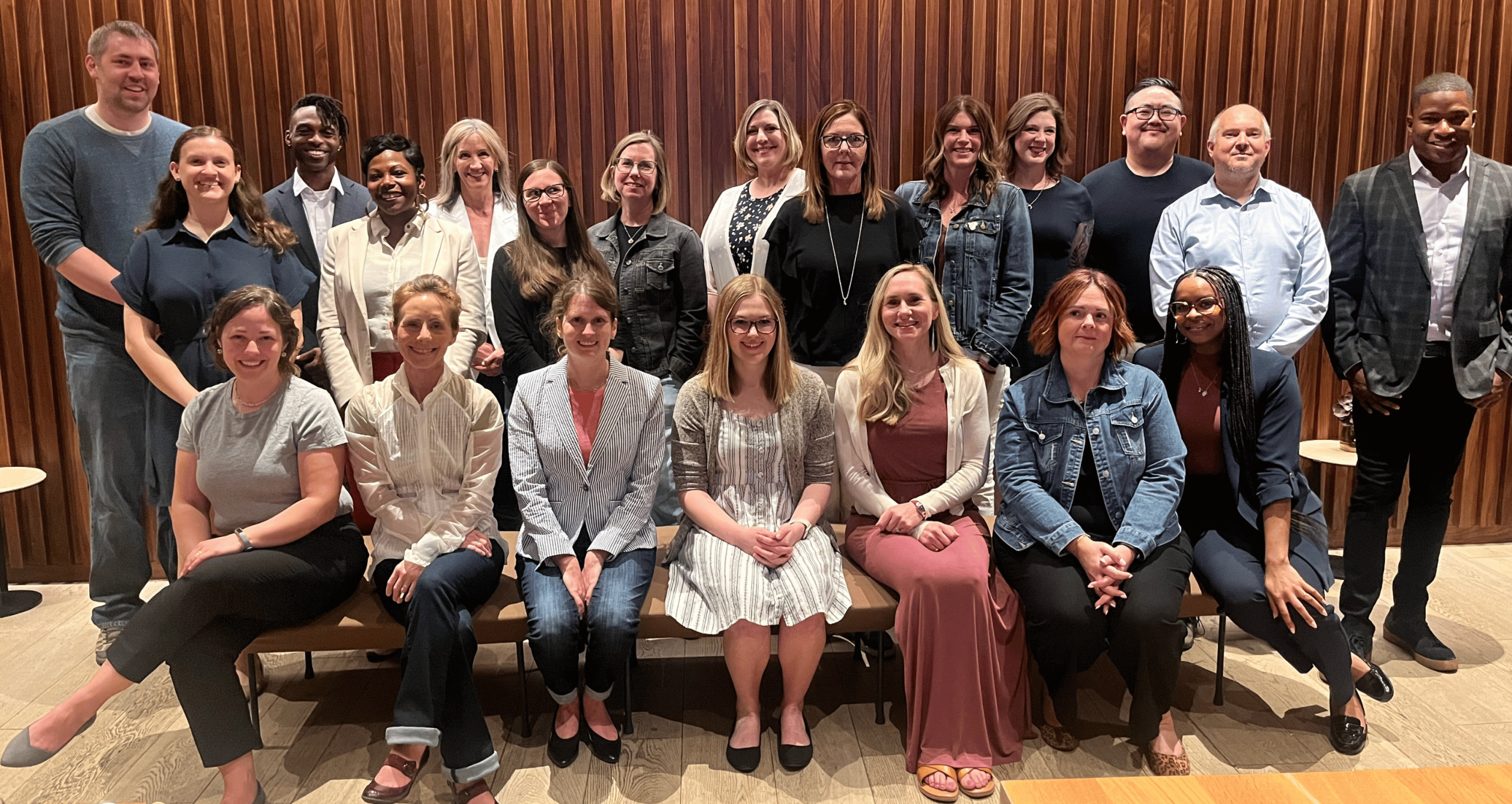Participating members of our Family Stabilization Initiative united in Seattle to discuss how to raise the visibility and support the sustainability of our work to engage 580 families in crisis in Alaska, Montana, South Dakota and Washington state. Through this cohort—part of our Results Innovation Lab—we activate community networks to address the disproportionate number of children of color separated from their families. Key to our success are our valued partners. By building a broad base of support, we are expanding supports in underserved communities that empower families to stay together.
For three days, member collaborated on approaches for sharing our story to engage community partners, evaluated the impacts of the collaborative learning model on implementation and sustainability, focused on the urgency to engage families in crisis and reviewed best practices to support key components of sustainability. Cohort members also shared marketing and outreach materials with each other to spark ideas for raising the visibility of their programs and engaging key community stakeholders in this work to reach more families.
Through this close interaction in such a collaborative setting, the Family Stabilization Initiative is generating the momentum needed to make a quantifiable difference for leaders in their communities and incentivizing additional partners to join us in this work. The cohort challenges participants to step into the shoes of the families with whom they engage to provide additional perspective on their experiences.
Several of our partners joined us for the convening:
- Chapin Hall at the University of Chicago facilitated collaborative breakout discussions around the seven components of sustainability—leadership capacity, equity, program fidelity, staffing, referrals, investment and community partnerships—for cohort members to share valuable insights on their successes and challenges as it relates to each component. Chapin Hall is committed to improving the well-being of children, youth, families and communities, dedicated to equity, and charged to create child welfare resources, practices, and policies that prioritize family support and prevention.
- Evans & Associates discussed asset-based storytelling to promote learning, sharing and telling our story and the stories of our families to engage people and the community in this work. The group provides an equity lens to storytelling through aspirational communications that amplifies the impacts of mission-related causes, initiatives and organizations.
- Our evaluation partner Wilder Research led an interactive session, “Ripple Effects Mapping,” to visually capture the impacts of the Results Innovation Lab over the course of the three-year initiative in building the capacity of the targeted four states to address racial inequities in local child welfare through prevention and to sustain the evidenced-based model beyond three years.
- Our partners at the National Center for Innovation and Excellence (NCFIE) organized a session around the urgency to engage families that are in crisis and best practices for family engagement and follow-up.
- Sheila Weber of Homegrown Strategies led a diversity, equity and inclusion (DEI) session focused on managing stress and building resiliency as well as a group brainstorming and problem-solving session focused on a specific dilemma one team is facing. Fellow cohort members were able to offer questions, expertise and ideas for tackling this challenge within their respective communities.
Collectively, we’re spearheading approaches that build on the strengths of families in ways we could not do on our own. When we come together, we create new pathways—and hope—for people and communities across the country.
Renada Johnson is the Director of Children, Youth and Families and Elizabeth Vetter is a Program Associate at Lutheran Services in America.
